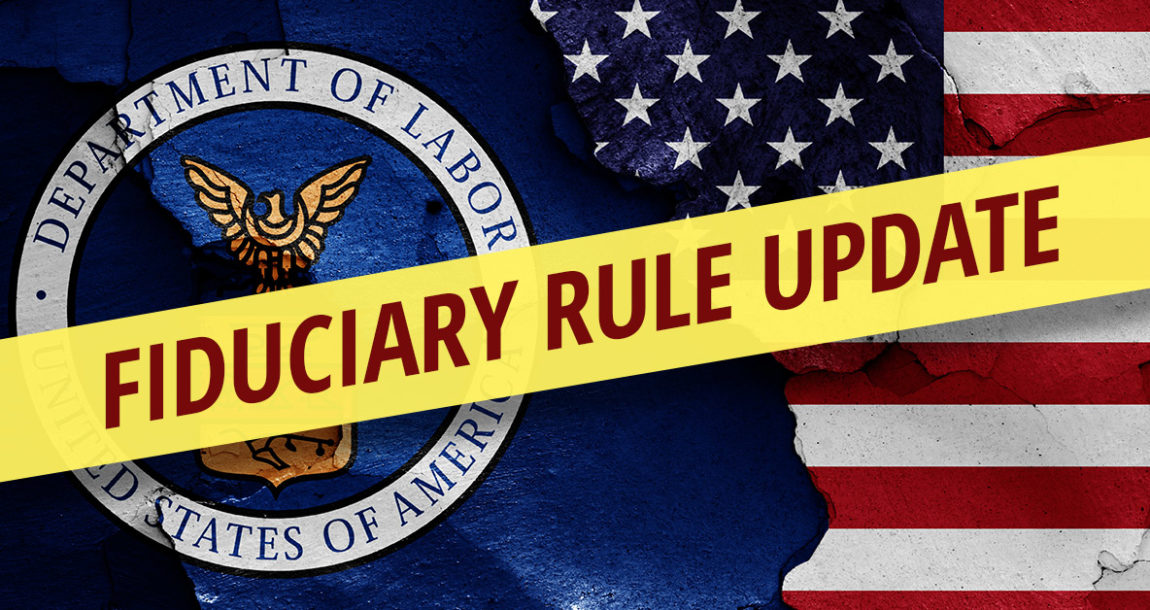DOL Official: We’re Watching Aggressive Marketing Of Retirement Products

WASHINGTON --Acting Assistant Secretary Ali Khawar gave away scant details Thursday on the Department of Labor's ongoing regulation work, but he did acknowledge cooperation with fellow regulators.
That tidbit is likely to give industry executives hope for some consistency of future rules.
Khawar is principal deputy assistant secretary for the Employee Benefits Security Administration. He addressed the agency's regulatory work Thursday at the Insured Retirement Institute's annual conference.
Last year, EBSA announced rulemaking plans to build on the regulation of retirement product sales via a new definition of "fiduciary" status. Khawar gave no hints of when the DOL would complete that work, but made it clear where agency priorities lie.
He described being most focused on a sales environment where "people are being somewhat aggressively being marketed to" and might not fully understand the products. It is this claim that seniors are losing billions to high fees and unnecessary product sales that led former President Barack Obama to introduce a fiduciary rule in 2015.
A Rulemaking Odyssey
The Obama fiduciary rule would later being tossed out by a federal appeals court. The Trump administration replaced it with a package of two rules: a new prohibited transaction exemption allowing advisors to provide conflicted advice for commissions; and a reinstatement of the "five-part test" from 1975 to determine what constitutes investment advice.
The Biden administration allowed that rule to take effect in February, but introduced a new intention to redefine "fiduciary." DOL regulators are conferring with regulators at the state level, as well as the Securities and Exchange Commission, Khawar said.
The Securities and Exchange Commission and state regulators have adopted best-interest rules that somewhat harmonize, a consistency of rules that makes insurance executives happy.
Khawar stressed the Labor Department's open-door process, even when industry leaders might not agree with the answers. The task is a difficult one, he added.
"It's hard because we're trying to write rules that apply for an entire industry," he said. "At the same time, we recognize that not everyone does everything exactly the same way, which makes it tricky."
Paula Nelson is managing director and head of strategic growth at Global Atlantic Financial Group. Speaking earlier in the day from the main stage, she urged executives to take responsibility for industry missteps.
"With every regulation that frustrates us, there was usually something that happened to cause it," Nelson said. "We have to always hold ourselves accountable to that. It's really easy to have bad actors emerge in our industry and to the degree we all stay together and unified around the advocacy front, that's what keeps the noise down."
InsuranceNewsNet Senior Editor John Hilton has covered business and other beats in more than 20 years of daily journalism. John may be reached at john.hilton@innfeedback.com. Follow him on Twitter @INNJohnH.
© Entire contents copyright 2022 by InsuranceNewsNet.com Inc. All rights reserved. No part of this article may be reprinted without the expressed written consent from InsuranceNewsNet.com.





Inflation Squeezes Homeowners, Commercial Property Insurers, Moody’s Reports
NAIFA Tackles Diversity Issues Before Heading To The Capitol
Advisor News
- A recession could leave Americans humming 'Oh, Canada'
- Market volatility driven by fear, emotion
- Grant Cardone, Gary Brecka seek mediation in business breakup lawsuit
- How well do consumers anticipate retirement healthcare, LTC costs?
- CFP Board launches initiative to accelerate growth and leadership of female professionals.
More Advisor NewsAnnuity News
Health/Employee Benefits News
- Best’s Special Report: Eligibility Redeterminations Put Pressure on Medicaid Managed Care Segment
- Visitor Guard® Offers Medical Insurance for Indian Travelers, Amid Measles Surge in US
- Small businesses struggle to provide health insurance
- Sierra Vista-based business group joins in warning about federal Medicaid cuts
- Nebraska dentists tout bill as path to better patient care; insurers say it will be costly
More Health/Employee Benefits NewsLife Insurance News